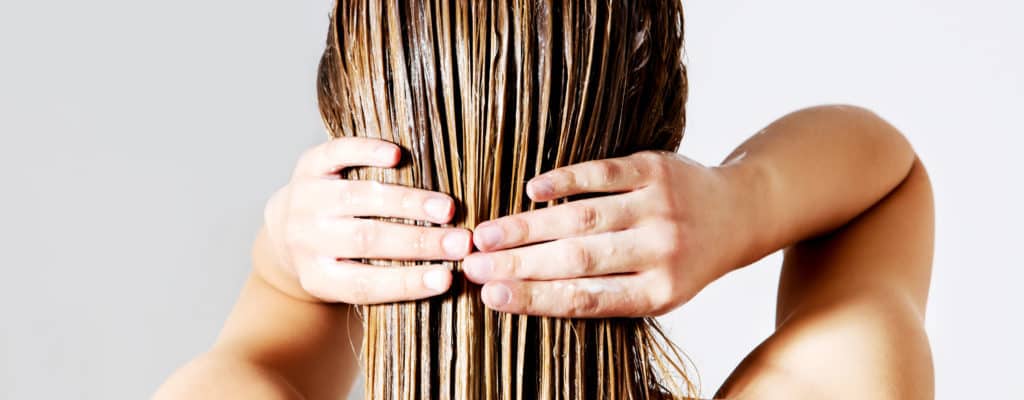
Nowadays, changing hair color often gives women a more youthful, stylish feel. However, for pregnant mothers, dyeing hair during pregnancy is a matter of concern and should be considered.
After giving birth, many women 'hair turns gray. They did not want to look old, ugly, inferior to their husbands, so they chose to dye their hair.
If you adhere to hair coloring techniques, this is a pretty safe beauty method. However, when you're pregnant, that's another story. According to one study, when dyeing your hair, a significant amount of it is absorbed through the pores of your scalp. ( 1 )
Although your body is resistant to toxins, the smell of the dye you inhale can affect your baby's development. Some of the dyes on the market often contain ammonia, a fairly toxic ingredient that can evaporate into the air and be easily inhaled.
Should I dye my hair during pregnancy?
Manufacturers often change the ingredients in dyes for competitive prices. Adding chemical ingredients can make the dye better, but this is still harmful for pregnant women. Therefore, experts suggest that it is safer to use temporary dyes.
Previously, studies showed that there was a connection between tar and dyes and damage to your body. Carcinogenic substances are carcinogens in dyes that can affect the fetus. Later, however, the addition of tar to the dye to prolong it was restricted. Manufacturers have replaced them with more benign ingredients. ( 2 ) ( 3 )
Learn more: 9 common skin problems pregnant women experience
An alternative to hair coloring
If you really want to dye your hair during pregnancy, you should consider the following in order not to affect your body.
1. Wait up to 3 months between pregnancy
This is arguably the best time to dye your hair. The first trimester of pregnancy is very important because organs like the muscles and pores of the fetus are still developing. Although there is no specific evidence that dye permeates the body, other minor side effects do occur. Therefore, it is best to avoid dyeing your hair in the first trimester!
2. Use food-based dyes
Vegetable dyes are the safest way for your hair because they do not contain chemicals that damage your hair or cause other complications for your body. Unlike chemical dyes, food dyes are odorless, so they won't make you feel nauseous or uncomfortable.
Please see lesson 7 natural hair dyes you can make at home! For more safe hair coloring tips.
3. Use natural henna colors
If you still like to dye your hair, try henna ( henna ). This is a flowering plant cultivated in arid regions of Africa, South Asia and Northern Australia. The leaves of the henna plant that are dried and crushed will turn indigo green. This is a natural hair color, quite safe for hair coloring and also does not affect the development of the fetus because it does not contain harmful substances.
How to use henna?
Soak henna leaves in water;
Leave it on overnight;
Crush this leaf in the morning;
Brush your hair and brush this mixture all over the hair;
For good results, use additional ingredients such as tea leaf extract or eggs.
4. Use light dyes
If you want to dye your hair, consider dyeing products that do not contain ammonia. These colors may be a safe solution for you, as they do not contain the same toxins or carcinogens as in other dyes.
Note when dyeing hair
Although there are currently no studies confirming harmful ingredients in temporary or conventional dyes, to be safe, limit your use of these drugs.
Read the instructions carefully before using dyes.
Use only good dyes.
Be careful to use gloves when dyeing your hair.
Brush the dye onto your hair instead of your scalp. In this way, the dye can't get through your bloodstream into your circulatory system. However, you need to try to see if you might be allergic to the drug before using it.
Do not use eyelash dye or eyebrow dye as this can cause infection or swelling.
Do not let the medication soak in too long and brush in a cool place instead of in a closed room.
Rinse the scalp thoroughly to avoid absorbing the dye.
Never eat or drink while dyeing your hair.
Usually hair changes during pregnancy, it becomes more curly and difficult to color. So you can repeat the brushing of your hair.
Consult your doctor before dying.
Often the hair dyeing can harm an unborn baby. Therefore, you need to be cautious about using dyes as well as dyeing properly to help make you safer. Dyeing hair in the right space for a short time will avoid long-term effects. In addition, the quality of the dye will have less harmful substances, so the harm will be less.
Hopefully the above article has provided you with essential information about hair coloring during pregnancy. Be sure to follow the safety instructions above so as not to affect yourself and your unborn baby!
aFamilyToday Health does not offer medical advice, diagnosis or treatment.












